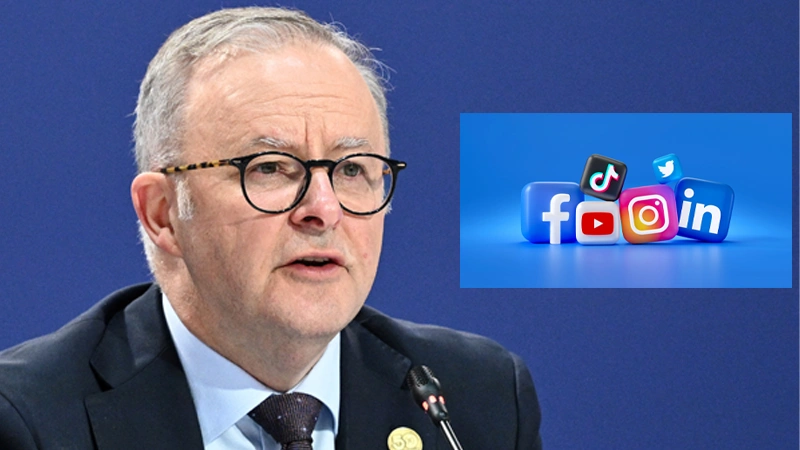Australian Prime Minister Anthony Albanese has talked about the initiative to ban social media for the children under the age of 16. The law is all set to get discussed in the parliament next week. This law aims to address the negative impact of social media on children’s mental health and safety. This ban, if implemented, would apply to famous social media platforms including Instagram, Facebook, TikTok, and X and YouTube. This law can be enforced by the end of 2025.
But this is not the first time a country has restricted children to use social media platforms. Previously, France had proposed a similar ban on social media for children under the age of 15. However, the users were able to avoid this ban by getting parental consent.
Unites Stated had also restricted use of social media for children under the age of 13. US asked the technology companies to seek parental consent which eventually led social media platforms to ban the children under that age of 13 from using these platforms.
In a news conference, PM Anthony Albanese talked about the online safety of the kids and said, “This one is for the mums and dads... They, like me, are worried sick about the safety of our kids online. I want Australian families to know that the government has your back.”
“I get things popping up on my system that I don't want to see. Let alone a vulnerable 14-year-old. If you're a 14-year-old kid getting this stuff, at a time where you're going through life's changes and maturing, it can be a really difficult time and what we're doing is listening and then acting, Young women see images of particular body shapes that have a real impact.”
“Social media is doing harm to our kids and I'm calling time on it. The onus will be on social media platforms to demonstrate they are taking reasonable steps to prevent access. The onus won’t be on parents or young people. There’ll be no penalties for users,” he further added.
However, DIGI Managing Director Sunita Bose believes that banning these platforms is not the only solution. She said, “Keeping young people safe online is a top priority but the proposed ban for teenagers to access digital platforms is a 20th Century response to 21st Century challenges. Rather than blocking access through bans, we need to take a balanced approach to create age-appropriate spaces, build digital literacy and protect young people from online harm.”
